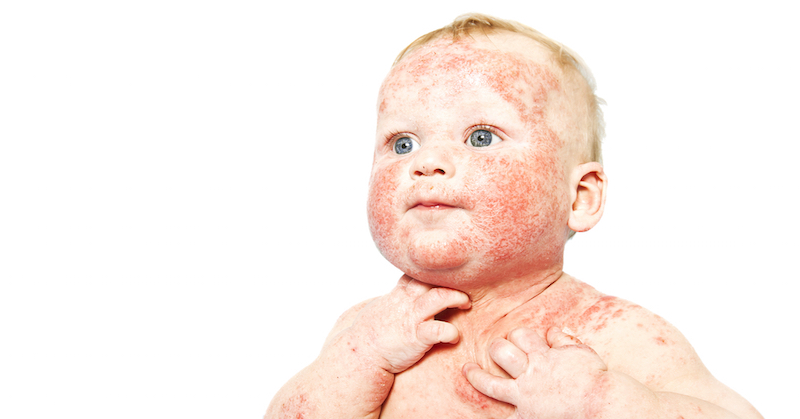Eczema, also known as dermatitis, is a term used to describe various forms of skin inflammation that lead to red, irritated and cracked skin.
The most common form of eczema, atopic dermatitis, affects as many as 18.1% of all children.
Symptoms
Although there are many forms of eczema, they all tend to produce similar symptoms in children, which include:
Itching
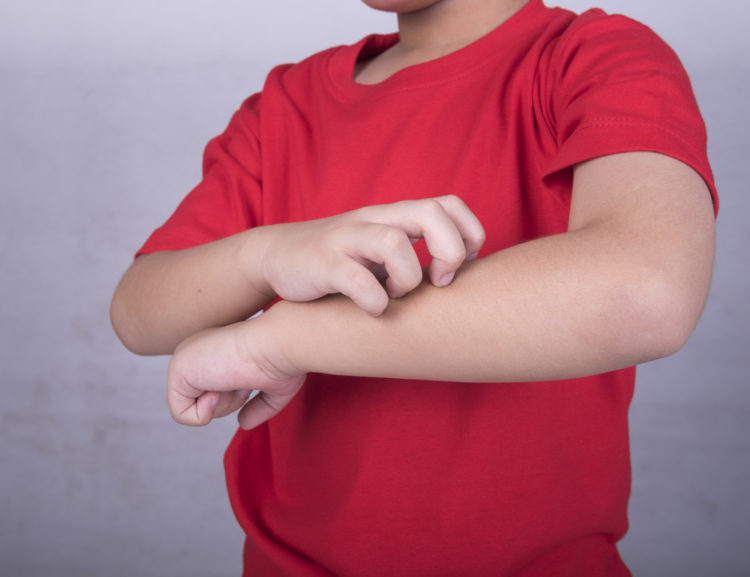
The damage done to a child’s skin during a bout of eczema is most often due to intense scratching. According to doctors, this can actually make the condition worse by causing cuts in the skin that can easily become infected.
Scaling
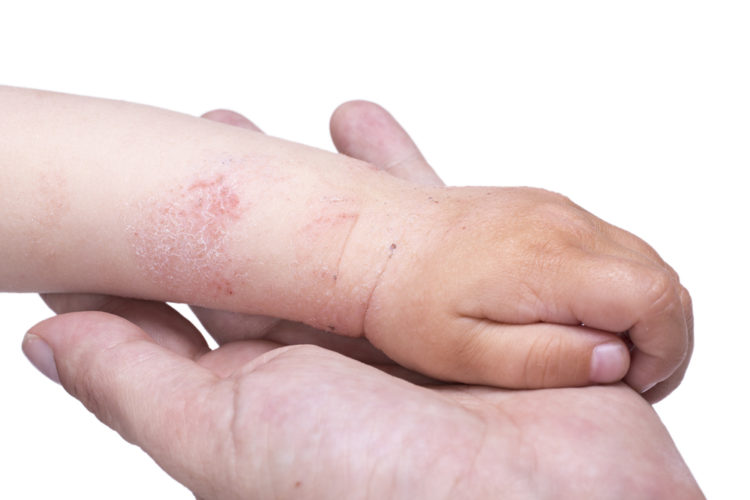
Even without scratching, a child’s skin can become flaky as a result of eczema. This can lead to a rough, scaly appearance of the affected area.
Redness
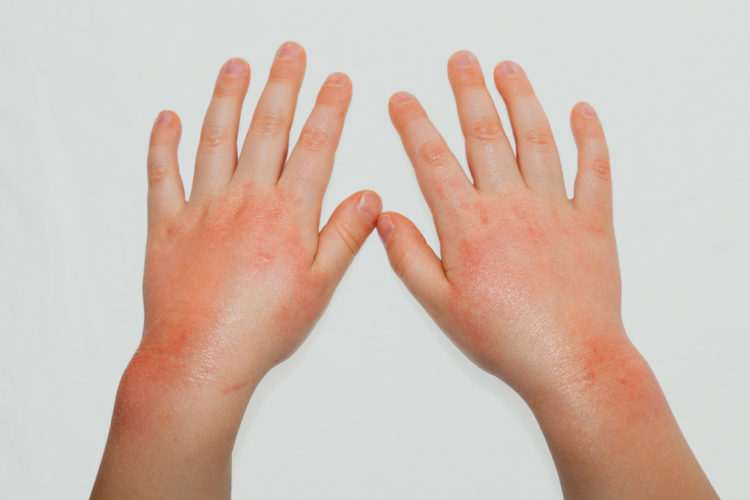
Eczema commonly produces a red rash. The rash can be blotchy or even bleed. The rash, as with other symptoms of eczema, may disappear and reappear many times throughout childhood and into adulthood.
Causes
The distinction between the various types of eczema becomes clear when one begins to look at the causes of the condition.
Atopic Dermatitis
Atopic dermatitis, the most common form of eczema, is often caused by genetics or defects in the skin barrier. It can also be triggered by harsh soaps or other chemicals and rough clothing.
Contact Dermatitis
Contact dermatitis is a form of eczema that develops after physical damage to the skin. This can be a result of contact with chemicals or obsessive washing. Children often develop contact dermatitis after coming into contact with poison ivy.
Neurodermatitis
This form of eczema develops as a result of obsessive scratching that can occur unconsciously or even while a child is sleeping.
Natural Remedies
Treatment options are similar for all forms of eczema. Once you’ve taken your child to his or her doctor to confirm eczema and not another condition, the doctor will likely prescribe an antibiotic or steroid cream.
Many people complain of the side effects of eczema medications, which can include thinning of the skin, change in skin color, growth hormone manipulation, high blood pressure and bone thinning.
If these effects are worrying to you, ask your child’s doctor if one of the natural eczema remedies included here is more suited for his or her case.
Check out the natural eczema remedies below!
#1 – Coconut Oil
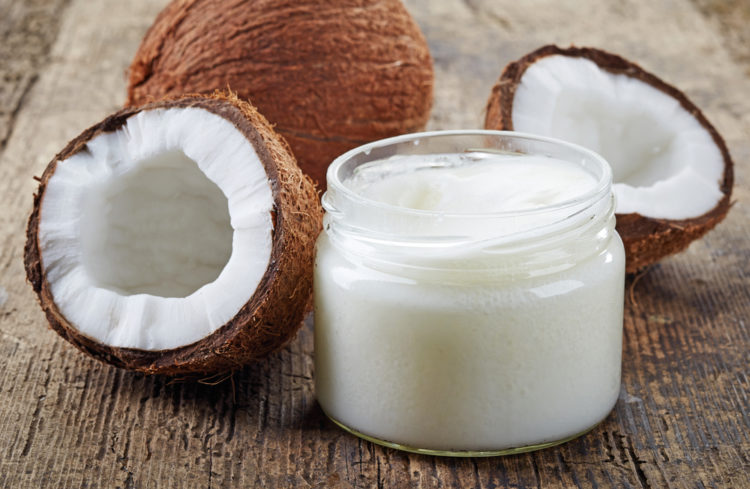
The National Eczema Association recommends organic virgin coconut oil as a no-risk alternative to various eczema creams that tend to produce additional reactions.
Coconut oil is a great natural anti-inflammatory substance that also works wonders for moisturizing dry skin and relieving itchiness.
Simply rub the oil gently into the affected area of your child’s skin and let it sit.
#2 – Magnesium Sulfate Baths
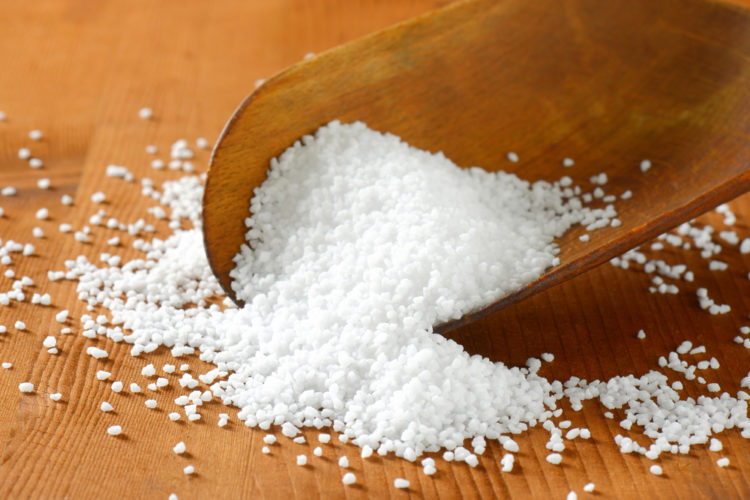
Magnesium sulfate, also known as epsom salt, is a natural anti-inflammatory and antimicrobial substance that can work to eliminate toxins, repair the skin barrier and cleanse the skin.
The most effective way to help your child reap the benefits of epsom salt is a bath.
Begin by preparing a bath as warm as is comfortable for your child. The water should be warm enough to sting the skin slightly while remaining tolerable. This will ensure that the pores open up.
Pour between half a cup and a full cup of epsom salt into the bathwater and let your child sit in it, submerging all affected areas in the water for 20 minutes.
Moisturize your child’s skin after the bath, and you should notice reduced redness and itching.
#3 – Probiotics
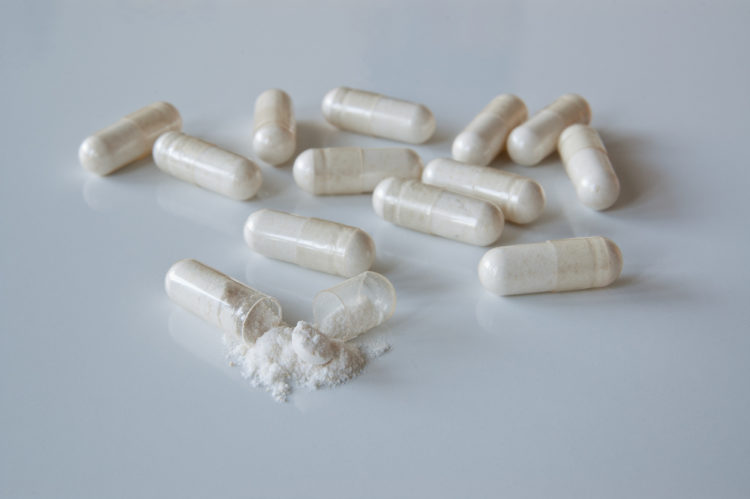
Probiotics are crucial to maintaining healthy skin. Researchers know that mothers who consume a healthy amount of probiotics are less likely to give birth to children suffering from eczema.
That’s not to say probiotics can’t help a child who is already battling eczema. In addition to buying natural probiotic supplements, you can feed your child the following probiotic-rich foods to help recovery:
- Yogurt
- Sauerkraut
- Soft cheeses
- Kefir
- Acidophilus milk
- Sour pickles
#4 – Sea Salt Spray
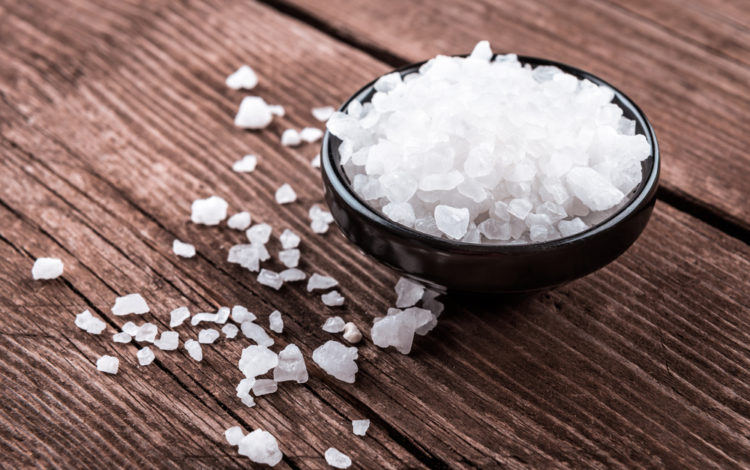
Have you ever noticed how healthy your child’s skin looks and feels after a day at the beach? That’s because they’ve been exposed to vitamin D, exfoliating sand and sea salt.
But just because your child can’t be at the beach 24/7 doesn’t mean that the power of it can’t be harnessed to fight eczema.
Simply mix a few teaspoons of sea salt into a spray bottle filled with warm distilled water.
If you do not have access to distilled water, boil tap water and let it cool. (Tap water on its own contains a variety of chemicals that can cause worsened eczema effects.)
Spray this mixture onto your child’s skin throughout the day for a relaxing, soothing treatment that will prevent flare-ups of eczema.
Sources:
Huffington Post
WebMD
NaturalCareClinic.ca
Prime Physique Nutrition
ProgressiveHealth.com
LiveStrong.com
National Eczema Association
Mayo Clinic


